In pictures: CM to inaugurate world’s first canal-based solar power plant on Sanand Branch Canal of Narmada
April 23, 2012
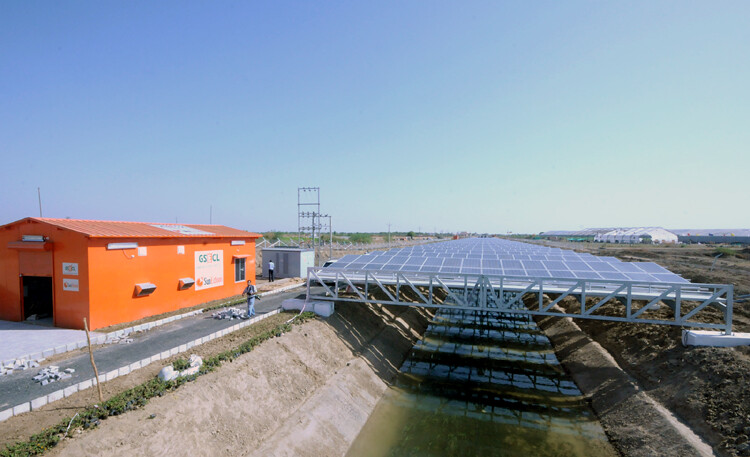
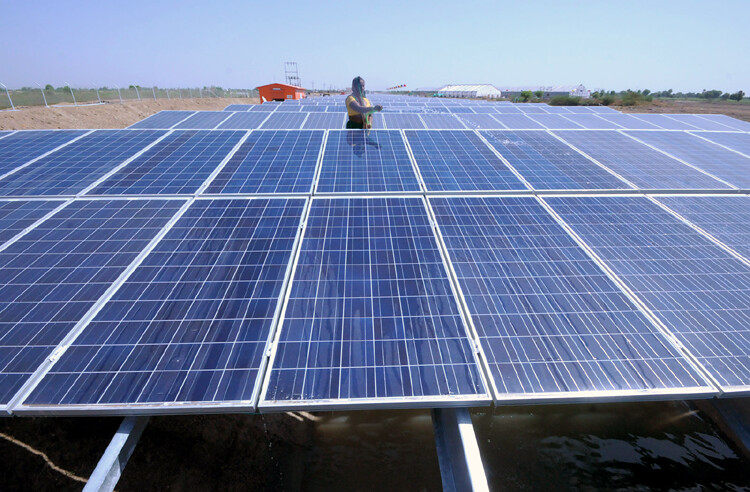
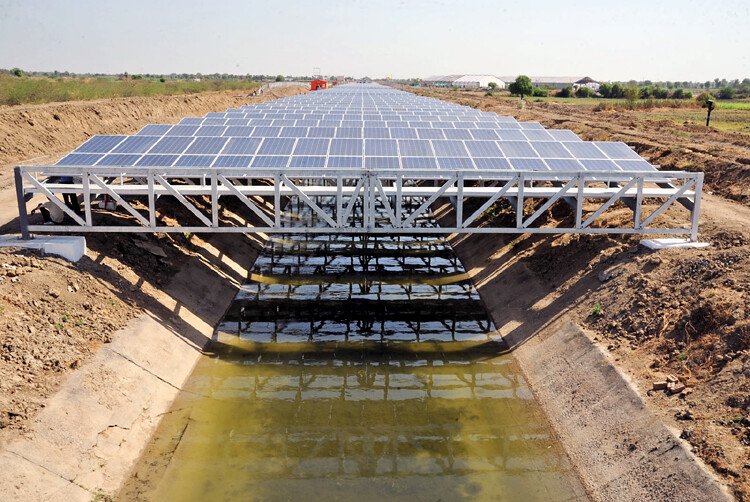
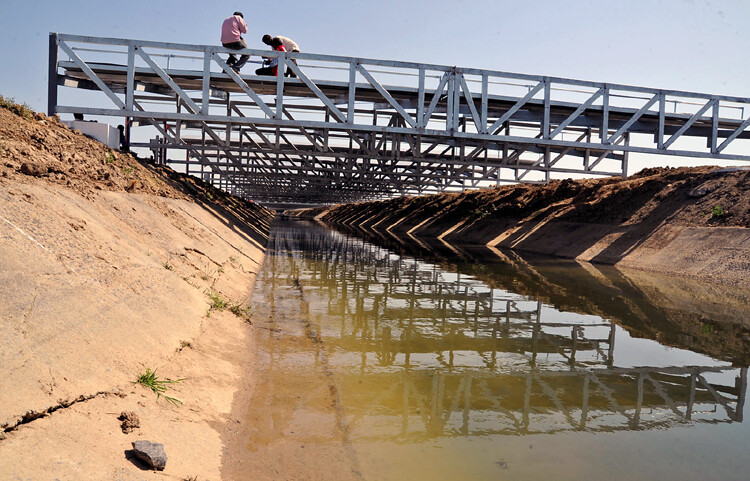
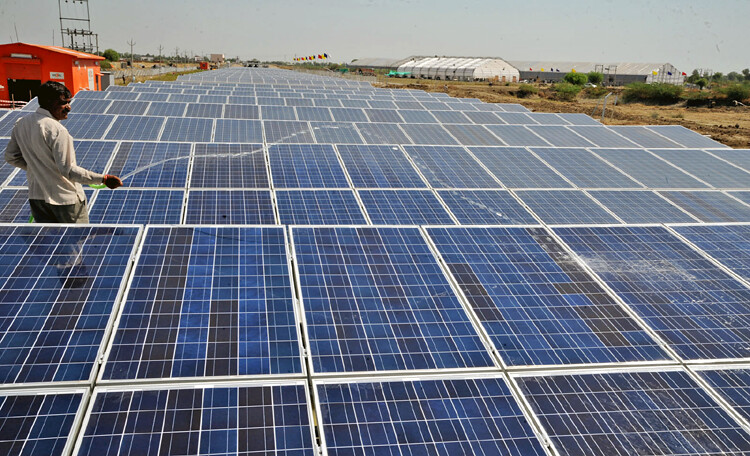
Ahmedabad, 23 April, 2012
Gujarat Chief Minister Shri Narendra Modi will inaugurate the world’s first canal-based 1 MW solar power project commissioned on Sanand branch canal near Chandrasan village of Kadi taluka in Mehsana district, on 24th April 2012.
The pilot project, designed to eliminate the requirement of land for setting up a solar plant, is set up by Gujarat State Electricity Corporation Limited (GSECL) with active support from Sardar Sarovar Narmada Nigam Limited (SSNNL). The solar power panels are set up over the 750 meter-long stretch of the branch canal and the project will generate 16 lakh units of clean electricity annually. Not only that, it will also prevent evaporation of 90 lakh liters of water from the canal every year. Thus, the project holds significance in view of energy security and water security as well.
Interestingly, the trial run of the solar plants indicates that solar panels set up under this project produce 15% more power as compared to similar panels set up under a plant on land or roof-top. The water flowing under the panels keeps them relatively cool and this helps in generating more power.
It is worthwhile to mention that the length of the Narmada Main Canal, constructed under the Sardar Sarovar Project (SSP), is 458 km, while the length of entire canal network under the project built up so far is about 19,000 km. The total length of entire canal network planned under the project is around 85,000 km. If 10% of the existing canal network can be used for setting up solar power plants, it will have a potential to install power generation capacity of 2,200 MW. This can eliminate the need of 11,000 acre of land that would have been required otherwise and save evaporation of 2,000 crore liters of water annually.
The commissioning of the canal-based solar power plants reaffirms Gujarat’s commitment towards tapping solar energy potential available in the state in a big way. The state has made a significant headway in this direction by installing 600 MW capacity in this sphere very recently. The achievement holds significance as the total installed capacity of solar power in rest of the country is just about 120 MW.
Recent Stories
- Shah in Anand hails Salt Cooperative Initiative of Kutch, predicts Rs. 1 lakh crore Turnover of Amul next year
- Section 144 imposed after arrest of AAP MLA Chaitar Vasava
- 24 hours rainfall data from across Gujarat; Bhiloda tops, Surat City had over 4.56 inch rain
- Chaturmas 2025 starts today across Gujarat; will end on 2nd November
- Gauri Vrat Goro begins across Gujarat ; Jaya Parvati Vrat from July 8
- Stray bull attacks man in Bhachau, Kutch; CCTV footage surfaces
- In pictures: Upcoming Five-Star Hyatt Hotel at GIFT City, Gujarat
